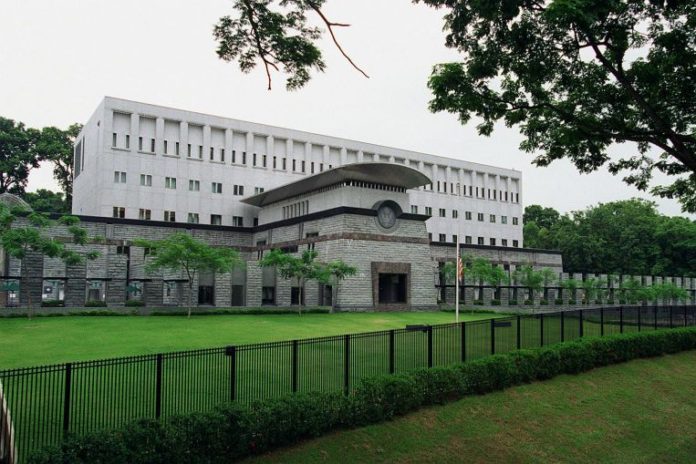
SINGAPORE – The Ministry of Foreign Affairs (MFA) on Wednesday (May 19) said it has reminded the United States Embassy here that foreign missions here are not to interfere in Singapore’s domestic social and political matters.
These include issues such as how sexual orientation should be dealt with in public policy.
This comes after the US Embassy co-hosted a webinar on Monday with Oogachaga, a local non-profit organisation working with the lesbian, gay, bisexual and transgender (LGBT) community.
A spokesman said MFA “notes with regret” that the event took place, and added that issues such as sexual orientation “are choices for only Singaporeans to debate and decide”.
In response to queries from The Straits Times (ST), a US Embassy spokesman said: “The United States promotes the human rights of LGBTQI+ (LGBT, queer and intersex+) persons worldwide. The US Embassy regularly works with civil society partners on a wide range of issues to build awareness and advance the human rights of all persons.”
Oogachaga executive director Leow Yangfa told ST that he noted “with surprise” the statement by MFA. “None of the (webinar) speakers discussed how sexual orientation should be dealt with in public policy,” said Mr Leow, adding that it was an “academic discussion”.
He said the invitation-only event was moderated by an Oogachaga volunteer and Singapore citizen, “who reminded multinational corporations to consult with local community organisations and to always abide by the laws of the territories in which they operate, especially in Singapore”.
Mr Leow also said that invitations were extended to officers from MFA and the Ministry of Social and Family Development, with at least two officers from the latter ministry in the audience.
The webinar, titled The Economic Case For LGBT Equality: Exploring Global Trends With Professor Lee Badgett, was posted on the professor’s personal website.
It was also posted on May17.org, an online resource for events around the world held on the International Day Against Homophobia, Transphobia and Biphobia, which is observed on May 17.
The webinar in Singapore sought to examine how LGBTQI+ (LGBT, queer and intersex+) equality and inclusion could increase economic competitiveness, using case studies from around the world.
Prof Badgett teaches economics at the University of Massachusetts Amherst, and is a renowned author and speaker on the economic impact of LGBTQI+ equality.
Mr Leow said that no financial remuneration was received from the US government for the conduct of the event.
To mark the same International Day in 2020, Oogachaga and the US Embassy also co-organised an online session with Sam Brinton from The Trevor Project, an American organisation providing crisis intervention and suicide prevention services to LGBTQ youth.
On May 17 this year, the US Embassy posted images on its social media channels of the rainbow pride flag being flown at its Napier Road grounds, and wrote that the US was “committed to advancing the human rights” of LGBTQI+ persons around the world.
The embassies or high commissions of the Netherlands, Britain, Sweden, Canada, Denmark, Norway, Australia, Switzerland and Ireland here also either posted messages of solidarity or displayed the rainbow flag on their social media pages.
Last Wednesday, ambassador-at-large Chan Heng Chee reiterated during a routine review of Singapore’s human rights record by the United Nations that the LGBT community were valuable members of society.
“The Government does not tolerate violence, abuse, discrimination, and harassment against the community,” she said. “An annual Pink Dot event in Singapore has been organised by the LGBT community for the past 12 years.
“While Section 377A of the Penal Code remains on the books, the Government has stated clearly that it is not enforced. In the context of Singapore, where attitudes towards homosexuality are still evolving, and various communities hold different views, any move by the Government must take into consideration the sentiments of all communities. We believe it is better to let the situation evolve gradually.”








